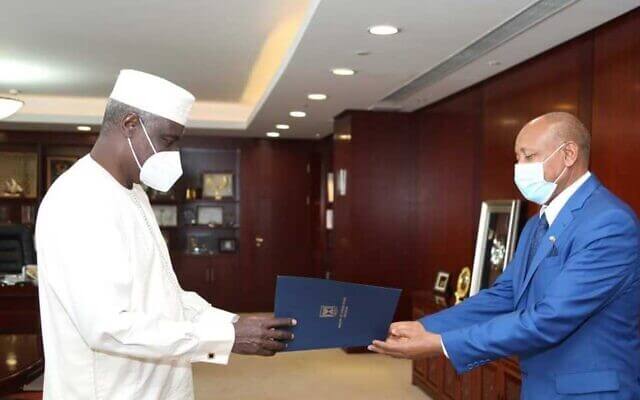The African Union (AU) reinstated Israel as an observer member on Thursday, almost two decades after it was ousted from the 55-nation pan African bloc. Jerusalem celebrated the AU’s decision, and Foreign Minister Yair Lapid called the event “a day of celebration for Israel-Africa relations.”
The AU was formed in 2002 to replace the Organization of African Unity (OAU). At that time, Israel, an observer country of the OAU, lost its seat in the newly formed AU following pressure from former Libyan dictator Muammar Gaddafi. The decision to restore Israel’s observer status was taken after intense negotiations between Israeli diplomats and their AU counterparts, especially after the Palestinian Authority was made an observer in 2013.
The Israeli Foreign Ministry stated that Israel’s Ambassador to Ethiopia, Aleleign Admasu, has submitted his credentials as an observer to the AU. Lapid tweeted that the move was a “diplomatic achievement” and resulted from efforts made by the Israeli Foreign Ministry and Israeli embassies in Africa. “In addition, it is a corrective step to the anomaly that has prevailed for almost two decades and is an important part of strengthening Israel’s fabric of foreign relations,” Lapid said. “This will help us strengthen our activities vis-à-vis the continent and vis-à-vis the member states of the organization,” he added.
After presenting the credentials, Aleleign and AU Commission Chairperson Moussa Faki Mahamat discussed ways to resolve the Israeli-Palestinian conflict. Mahamat noted that the conflict is a “cause of great concern [and] that a lasting solution was required to ensure the co-existence of both nations and to allow their people to live in a state of peace and stability.” In this regard, the chairperson underscored the AU’s commitment to a two-state solution to the crisis.
Moreover, the Israeli Foreign Ministry’s Director-General of African Affairs, Aliza Ben-Noun, told Haaretz that the AU’s decision was a result of a “diplomatic operation” launched by the Ministry. She mentioned that apart from opening new arenas for Israel-Africa cooperation in economic and security fields, the observer status also represents “political recognition” by an organisation that has not been friendly to the Jewish state for decades. The Ministry also confirmed that following the formal establishment of observer status, “the parties will be able to cooperate, among other things, in the fight against Coronavirus and the prevention of the spread of extremist terrorism throughout the continent.”
Israel has formal diplomatic ties with 46 AU members except for Algeria, Libya, Tunisia, Somalia, Mali, Niger, Comoros, Djibouti, and Mauritania. The country re-established relations with Guinea in 2016, which cut off ties following the 1967 war, and in 2019 Israel renewed relations with Chad. Moreover, in 2020, Morocco and Sudan announced that they would normalise ties with Israel as part of the landmark Abraham Accords. In 2016, former Prime Minister Benjamin Netanyahu became Israel’s first premier to travel to Africa in decades when he visited Kenya, Uganda, Rwanda, and Ethiopia. The Times of Israel reported that apart from cooperating in political, economic, and security fields, Israel has also been trying to improve relations with African countries to improve the continent’s voting record in international fora.

